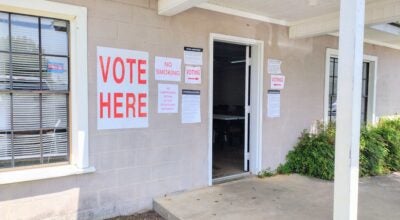Dean discusses challenges of AYP for special needs students
Published 5:10 pm Wednesday, August 25, 2010
Adequate Yearly Progress. What exactly does it mean, and why is it such a challenging goal to meet for our schools?
“Well, one problem is there is still no clear definition of AYP. It varies depending on the grade levels; it varies due to the dynamics of each and every school,” says Joseph Dean, principal of Georgiana School.
Dean said the issue of special needs students, how they are categorized and what is expected of them by the State Department of Education is one of the biggest areas of contention for many educators.
“If a student is experiencing difficulties, their parent or teacher may refer them to special needs for evaluation and various types of interventions we have in place,” Dean explained.
“If that student is deemed to lack the ability to learn at the same pace as other students, then special accommodations are made to assist that student. Let me make it clear that it isn’t they can’t learn; they just can’t do it at the speed or level of the average student.”
While these students’ learning difficulties are acknowledged, special needs students are still expected to adhere to the same requirements and expectations as regular students in order to graduate, Dean said.
“We offer three types of diplomas: advanced, standard and credit-based. A student must complete all Carnegie Units, all parts of the graduation exam and AP coursework for an advanced diploma. For a standard diploma, students must complete all Carnegie Units and all parts of the graduation exam,” Dean said.
A student can earn a credit-based diploma by completing all their Carnegie Units and three parts of the graduation exam: math, reading, and one other part.
“For our special education students, if they have a learning disability in math or reading, they can be exempt from that part of the test. However, they still have to pass the other parts of the test just like the regular students,” Dean said.
“Obviously, if they have difficulty reading, for example, it’s going to be hard for them to successfully pass the other parts of the test.”
Students who cannot master the material at the same rate as their classmates and require an additional year of school to complete their studies are labeled by the state department as drop-outs.
“Even though they complete the work and receive a diploma, the state still says they are drop-outs because they didn’t graduate with their original class,” Dean explained.
Another option for special needs students is an Alabama Occupational Diploma, which requires 240 documented work hours on the job and completion Carnegie Units, but no requirement to pass the graduation exam.
“Some of the requirements and policies are hard to understand. But we are accountable as educators. We accept the responsibility when we accept the paycheck to adhere to the requirements as much as possible, whether or not we agree with them,” Dean said.
And the support of parents and guardians is appreciated, the principal said.
“They can visit the school, get involved in PTA, encourage their kids to study hard; all these things are helpful. But regardless of whether we get phenomenal support or no support at all, we can’t let that be a deciding factor in whether or not our kids are successful,” Dean said.
“Education is a tough job, a very tough job–but this is what we signed on for. We are here to provide a quality education for these kids.”
Dean said the school was still waiting on a response to their appeal regarding Georgiana School missing AYP in 2009-2010 due to the graduation rate.
The ASDE actually based their data on the RL Austin Elementary population of the school after consolidation—which has no graduates.
“We are confident that we will achieve AYP based on the corrected information. And we are off to a really good start to our school year here. Our faculty has worked hard to make it an uneventful one so far,” Dean said with a smile.




